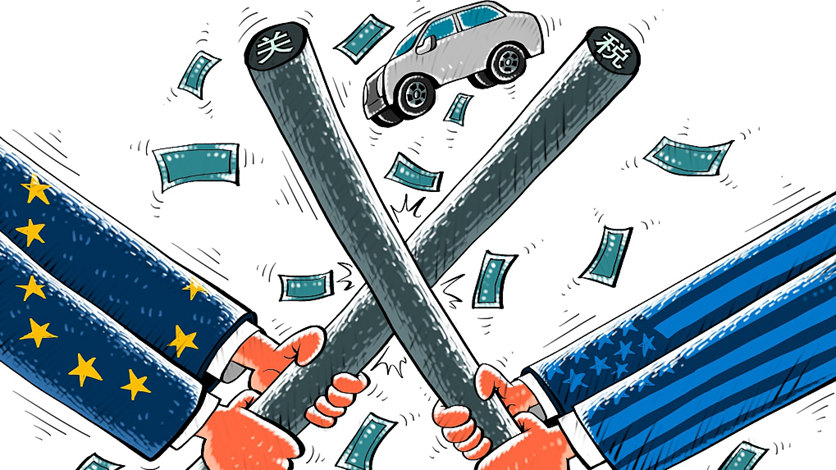
Biz Analysis
14:32, 16-Feb-2019
Automakers brace for U.S. government report on import tariffs
CGTN

A confidential Commerce Department report due to be sent to Donald Trump on Sunday is widely expected to clear the way for the U.S. president to threaten tariffs on imported autos and auto parts by designating the imports a national security threat, auto industry officials said on Friday.
The report's recommendations may bring the global auto industry a step closer to its worst trade nightmare – U.S. tariffs on millions of imported cars and parts of up to 25 percent that many in the industry fear would add thousands of dollars to the cost of vehicles and potentially cost hundreds of thousands of jobs throughout the U.S. economy.
The contents of the report are expected to remain classified while Trump considers its recommendations that could last for 90 days, leaving the industry and major car exporters like Japan, the European Union and South Korea in the dark about its consequences.
Auto industry officials said they expect the report to recommend at least some tariffs so that the administration can use the findings of the probe as negotiating leverage during talks this year with Japan and the EU.
The report is the result of an investigation started by the Commerce Department in May 2018 at Trump's request. Known as a section 232 investigation, the probe's purpose is to determine the effects of imports on national security, and this Sunday is the deadline for the final report.
Automakers and parts suppliers are anticipating its recommendation options will include broad tariffs of up to 20-25 percent on assembled cars and parts, or narrower tariffs targeting components and technologies related to new energy cars, autonomous, Internet-connected and shared vehicles.
Administration officials have said tariff threats on autos are a way to win concessions from Japan and the EU. Last year, Trump agreed not to impose tariffs as long as talks with the two trading partners were proceeding in a productive manner.
A report from the Center for Automotive Research in Ann Arbor, Michigan, published on Friday showed that its worst-case scenario of a 25-percent tariff would cost 366,900 U.S. jobs in the auto and related industries.
Major automaker groups said last year that the cumulative effect for the U.S. would be an 83 billion U.S. dollars annual price increase and argued that there is no evidence auto imports pose a national security risk.
Trump said on Friday that tariffs protect industry and also help win trade agreements.
"I love tariffs, but I also love them to negotiate," he said.
Source(s): Reuters

SITEMAP
Copyright © 2018 CGTN. Beijing ICP prepared NO.16065310-3
Copyright © 2018 CGTN. Beijing ICP prepared NO.16065310-3